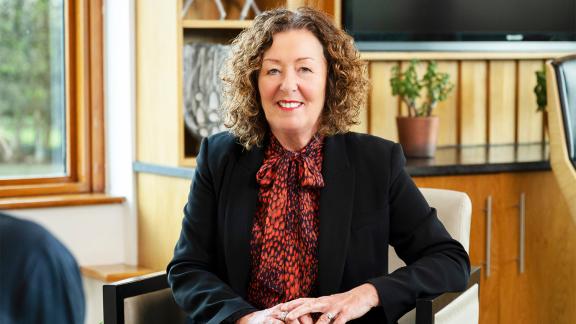Reimagining the relationship between universities and the NHS

Dame Jackie Daniel writes on changing the way universities and the NHS work as anchor institutions to be even more motivating and inspiring in the ways they benefit their local populations.
The COVID-19 pandemic has thrown the inequalities in our society into sharp focus and exposed just how fragile some of our communities are. I’m sure that each of us is reflecting on how we can do more in our organisations and move faster to create a positive impact on our society as we begin the long process of recovery. But doing this as individual institutions won’t be enough.
Recently, the NHS Confederation and the Civic University Network asked me to chair three roundtable sessions with senior NHS, local authority and university colleagues to consider how we can reimagine the relationship between us, to leverage the maximum opportunity for positive impact from the partnership between these important anchor institutions.
In every part of the UK, universities and the NHS are working alongside their local authorities to improve the health, wealth and wellbeing of their local populations. They do this by developing the clinical workforce of the future, carrying out ground-breaking research and improving our understanding of how to live longer and healthier lives.
The wider impact of anchor institutions
But increasingly we understand the potential we have as anchor institutions in our local areas – the wider impact we can play as major employers, as organisations with significant procurement budgets and with important reputational worth which reaches beyond our boundaries. By working together differently, imagine how much more place-based benefit we can bring.
In Newcastle, we are fortunate to have high-performing, successful institutions, and we are very proud of our achievements, but at the same time the population we serve has some of the highest levels of deprivation and inequalities in the UK, and the last year has deepened those further.
As a health leader, I’m of course concerned with providing the best possible healthcare, but more than that, I have a responsibility towards the broader health, wealth and wellbeing of the population. The only way that I or any chief executive can make an impact here is by working with civic partners. It’s vital that wherever I can, I enable what I call ‘sticky edges’ to make working with those partners as easy and as fruitful as possible.
New approaches to integrated care
Over the past 12 months, we’ve developed a new approach to integrated working in the city, which we call ‘Collaborative Newcastle’. This brings together health organisations, the city council, and importantly our universities, to transform the way we deliver care and approach the challenges of our place.
Together we are developing an ambitious, world-class campus for ageing and vitality to make Newcastle the go-to place for innovation, research and technological advances in ageing. We’ve opened the Integrated Covid Lab North East, a state of the art innovation lab to develop new COVID-19 science, alongside one of the biggest lighthouse labs in the UK and a public health disease coordination centre. This has brought not just a strong response to the pandemic, but around 700 much needed skilled public sector jobs to our communities.
Our Joint System Leadership programme has created the opportunity for tomorrow’s leaders to learn together regardless of their organisational background so that they have the skills needed for the future role we will expect of them, and can be confident about continuing to form even stronger and closer bonds as they progress.
Strength in partnerships
None of these achievements would have been possible without the unique contribution that each of our partners is able to play, and they serve as examples of what we can deliver if we reimagine our shared futures.
I’ve been delighted to hear from so many senior contributors from across the spectrum of experience during our workshops. It’s been inspiring to listen to the great work that is underway in so many different parts of the UK and I’m more certain than ever that we have the potential to unlock some significant positive influence and make a tangible impact.
We have three key intentions from the work:
- To coproduce a set of principles on how universities and the NHS can work together locally to maximise our collective benefit to society and the economy.
- To influence forthcoming national policy and legislation to formally embed our principles for a reimagined NHS-university relationship, particularly in the light of the emerging integrated care systems.
- To ensure that the NHS-university relationship is at the heart of sector-specific parallel national discussions about the role and reach of anchor institutions and the ‘levelling up’ agenda.
This feels like a moment when we can make a significant move towards a new way of working which is motivating and inspiring, with demonstrable outcomes which creates a new vision of our shared role, which is firmly rooted in place.
We’d love to hear your views on this important work. Please do join our forthcoming sessions at the Civic University Network Conference in May and the NHS Confederation Annual Conference in June or get in touch with Michael Wood.



